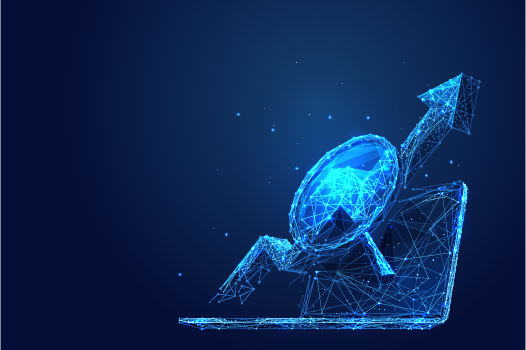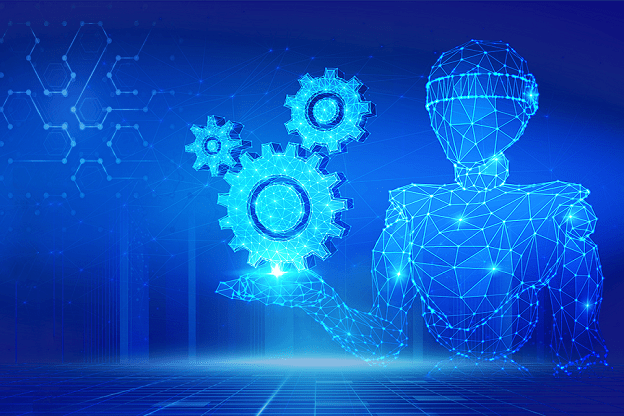The world of work is undergoing a profound transformation driven by the relentless advancement of technology. In recent years, we have witnessed a significant shift in how we work, where integrating artificial intelligence (AI) into the workplace is becoming increasingly common. Next-generation AI is not just revolutionizing industries; it is empowering the frontline workers and enhancing the digital workspace, setting the stage for the future of work. Let’s explore how AI changes the work landscape, benefits frontline employees, and shapes the digital workspace.
The Changing Landscape of Work
The traditional notion of work, which often revolved around repetitive tasks, is evolving. Thanks to AI, frontline workers can now focus more on meaningful, value-added activities while leaving the mundane and repetitive tasks to machines. This shift improves job satisfaction and engagement, leading to a more motivated and effective workforce. AI-powered tools are revolutionizing various industries, from healthcare to manufacturing and customer service. For example, AI assists medical professionals in diagnosing diseases and streamlining administrative tasks, allowing doctors and nurses to spend more time with patients. In customer service, AI chatbots resolve common inquiries, freeing human agents to handle complex issues and provide better customer experiences.
The Role of Next-Generation AI
Next-generation AI is not just about automation; it is about augmentation. It works harmoniously with human capabilities, amplifying their potential rather than replacing them. Here’s how AI is empowering the frontline:
Real time Decision-Making:
Improved Efficiency and Productivity:
AI-driven automation and robotic process automation (RPA) are streamlining routine and repetitive tasks. It allows frontline workers to focus on more complex and value-added aspects of their jobs, increasing productivity and reducing mundane workloads.
Personalized Customer Interactions:
AI helps frontline employees deliver more customized services. AI can analyze guest preferences in the hospitality industry to provide tailored experiences, creating a loyal customer base.
Improved Communication and Collaboration:
Next-generation AI enables seamless communication and collaboration among frontline workers, allowing them to share vital information and insights in real-time. For example, in healthcare, AI-driven chatbots can assist nurses in triaging patients more efficiently.
Increased Safety:
In industries such as construction, manufacturing, and mining, AI-powered robots and drones can be deployed for dangerous tasks, reducing the risk to human workers. AI systems can also predict and prevent workplace accidents by analyzing data from sensors and cameras.
Data Analysis and Predictive Maintenance:
AI can analyze data from sensors and equipment to predict when maintenance is needed, reducing downtime and preventing costly breakdowns. This is particularly valuable in industries like aviation, energy, and transportation.
Remote Work Enablement:
AI-driven communication and collaboration tools can facilitate remote work for frontline workers, allowing them to perform tasks from off-site locations when necessary. This has become especially important during the COVID-19 pandemic.
Faster Response to Emergencies:
AI can help emergency responders by analyzing data from various sources to predict and detect disasters or crises earlier. Additionally, it can assist in coordinating response efforts and resource allocation during emergencies.
Resource Optimization:
AI can optimize the allocation of resources, such as personnel, vehicles, and equipment, in real-time. This ensures that frontline workers are deployed where they are most needed, increasing overall operational efficiency.
Cybersecurity:
AI detects and mitigates cybersecurity threats in real time, ensuring the security of frontline workers’ digital operations and sensitive data. The future of work is increasingly intertwined with next-generation AI, and one critical area where AI plays a substantial role is cybersecurity. As our work environments become more digitally driven and interconnected, the importance of securing data and networks cannot be overstated.
Upskilling Opportunities:
With AI handling routine tasks, frontline workers have more time for upskilling and professional development. Employers increasingly invest in training and development programs, ensuring their workforce remains competitive. The future of work is closely intertwined with next-generation AI, and one of its significant impacts is creating upskilling opportunities like following:
Personalized Learning Paths: Next-generation AI leverages data analytics and machine learning to tailor learning experiences to individual needs. This ensures employees focus on development of the skills that are most relevant to their roles and career growth.
Continuous Learning: AI-driven platforms offer opportunities for continuous learning. They enable employees to acquire new skills incrementally, promoting a lifelong learning approach. This is especially important in an era where the skills needed for many jobs constantly evolve.
Real-time Feedback and Assessment: AI can provide real-time feedback and assessment of a learner’s performance. This helps employees understand their strengths and areas that need improvement, allowing them to focus on their weaknesses and track their progress.
Digital Workspace Transformation: Enabling Seamless Collaboration
The digital workspace is no longer confined to a physical office or a computer screen. It has expanded to include remote work, mobile devices, and collaboration tools, and AI is at the forefront of this transformation. It is a comprehensive and integrated environment that combines various digital tools such as Google Workspace & Microsoft 365, and different technologies to support remote and in-office work. It includes collaboration tools, cloud computing, AI-driven analytics, and more. Here is how it supports frontline workers:
Personalization:
AI tailors the digital workspace to individual needs, making it more user-friendly. Virtual assistants, like chatbots, help employees find information and answer questions quickly.
Automation:
Mundane and repetitive tasks are automated, allowing employees to focus on more creative and strategic aspects of their work. This boosts productivity and job satisfaction.
Data Analytics:
AI helps organizations gather and analyze vast amounts of data, providing insights that can guide strategic decisions and optimize processes.
Flexibility:
Frontline workers can access critical information and communicate with colleagues from anywhere, on-site, in the field, or remotely. This flexibility improves work-life balance and adaptability.
Collaboration:
The digital workspace fosters better collaboration by providing tools like video conferencing, messaging apps, and shared document repositories, connecting employees across locations.
Conclusion
The transformative power of next-generation AI is shaping the future of work, empowering frontline workers across various industries. From enhancing productivity and efficiency to improving decision-making, personalizing customer experiences, and enhancing safety, the impact of AI on the frontline is undeniable. However, navigating the challenges and ethical considerations that come with this shift is essential. With thoughtful planning and collaboration, integrating AI into the digital workforce promises to create a more productive, efficient, and safe working environment for employees while driving innovation and growth in industries worldwide. Embracing next-generation AI can make the future of work brighter and more promising for everyone involved.
Here’s where VE3 come into the picture, our services and expertise harness the transformative capabilities of AI 2.0, enhancing productivity, improving decision-making, personalizing customer experiences, and emphasizing safety across various industries. We represent a pioneering force in integrating AI into the frontline workforce with innovative approaches that reshapes how you work, demonstrating that AI is not a replacement for human workers but a valuable collaborator that elevates our capabilities.


















